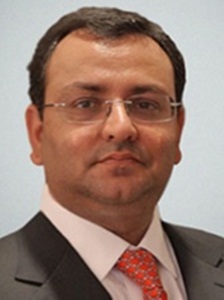SC stays NCLAT order reinstating Cyrus Mistry as Tata Group chairman
10 Jan 2020
The Supreme Court today stayed an order by the National Company Law Appellate Tribunal (NCLAT) reinstating Cyrus Mistry as executive chairman of the Tata Group.

The Supreme Court today stayed an order by the National Company Law Appellate Tribunal (NCLAT) reinstating Cyrus Mistry as executive chairman of the Tata Group.


2026 marks the shift from AI “promise” to “profitability.” Explore how India’s sovereign compute and Infosys’s revenue metrics are defining a $250B market pivot.

Viral claims of a Windows collapse contrast with market data showing a slower shift as enterprises weigh AI, hardware costs, and legacy systems.

Vinyl, books, and DVDs are seeing renewed interest as Americans seek ownership, focus, and a break from screen fatigue in an increasingly digital world.

China will grant zero-tariff access to 53 African nations from May 2026, reshaping global trade ties and deepening economic links across the Global South.

The Trump EPA moves to rescind the 2009 Endangerment Finding, reshaping federal climate authority and business risk.

HM Treasury selects HSBC Orion and Ashurst LLP for its Digital Gilt Instrument (DIGIT) pilot. A deep dive into the architecture, legal framework, and the shift toward near real-time settlement.

Cisco's new Silicon One G300 targets AI data center bottlenecks as networking becomes central to compute performance.

Intel and AMD server CPU shortages are hitting China as AI data center demand surges, pushing lead times to six months and driving prices higher.

India's Budget 2026-27 targets fiscal discipline with record capex as markets tumble, the rupee weakens and manufacturing struggles to regain momentum.